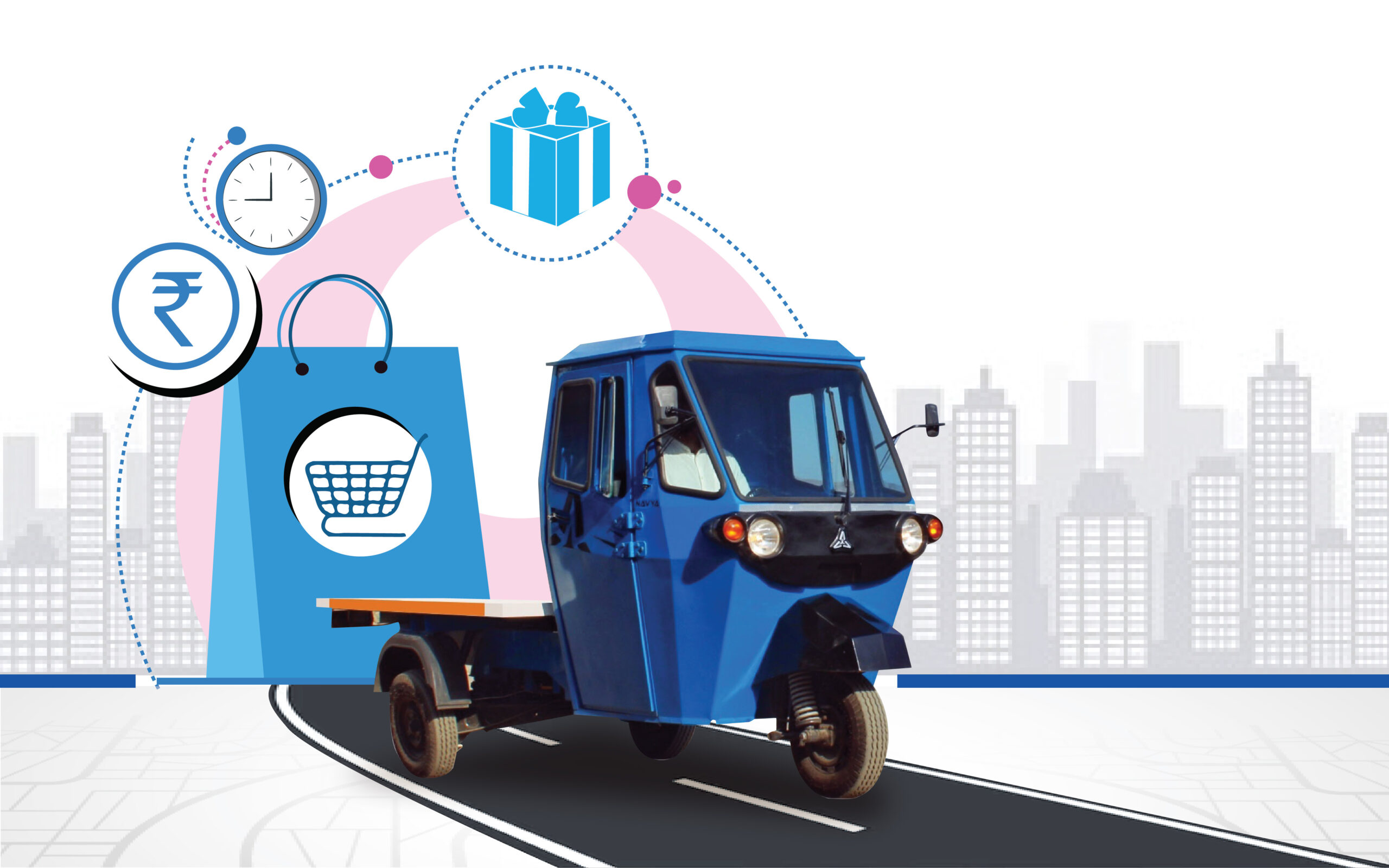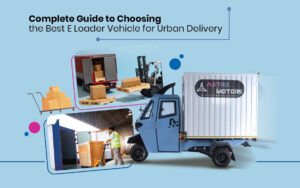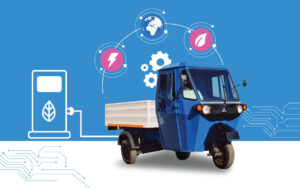Transforming India’s E-commerce with Electric Cargo Vehicles: Driving Efficiency and Sustainability
Lately, the rise of online businesses has changed the way we shop and conduct business. With the convenience of online shopping, consumers can now browse and purchase products from the comfort of their homes, leading to a surge in demand for efficient and reliable delivery services. As a result, the e-commerce industry in India has had to adapt and evolve to keep up with the increasing volume of online orders. One significant development in the industry is the growing use of electric cargo vehicles.
Electric Cargo Vehicles for the E-commerce Industry in India
The e-commerce industry in India has been booming, with more people choosing to shop online for convenience and variety. However, this growth brings its own challenges, especially in last-mile delivery. As online orders increase, the demand for efficient and sustainable delivery solutions has also risen.
One of the vital answers to this issue has been the adoption of electric cargo vehicles. Electric cargo vehicles offer a more environmentally friendly and economical option compared to traditional combustion-engine tempos. These vehicles are not only better for the environment, but they also help reduce operational costs for e-commerce organizations.
In India, where air pollution is a pressing issue, the shift towards electric vehicles is crucial for improving air quality and reducing carbon emissions. By replacing combustion-engine vehicles with electric cargo vehicles, like Astro Navya, e-commerce organizations can significantly lessen their carbon footprint and contribute to a cleaner and greener environment.
Furthermore, the use of electric cargo vehicles can also help reduce overall transportation costs for e-commerce businesses. Electric vehicles have lower operating and maintenance costs compared to combustion-engine vehicles, making them a more cost-effective choice in the long run. This can help the organizations streamline their operations and improve their profit margins.
Another key advantage of using electric cargo vehicles in the e-commerce industry is the adaptability and flexibility they offer. Electric cargo vehicles come in various sizes and configurations, making them suitable for a wide range of delivery needs. Whether it’s small packages or large parcels, electric cargo vehicles can handle the job efficiently.
Additionally, electric cargo vehicles are quieter than traditional combustion-engine trucks, which can help reduce noise pollution in urban areas. This can be a significant advantage for e-commerce businesses operating in densely populated cities where noise regulations are in place.
Overall, the adoption of electric cargo vehicles in the e-commerce industry in India is a game changer. These vehicles not only offer a more sustainable and environmentally friendly solution for last-mile delivery, but they also provide cost savings and operational efficiencies for e-commerce companies. With the growing awareness of the need for sustainable transportation solutions, electric cargo vehicles are poised to transform the e-commerce industry in India and pave the way for a cleaner and greener future.
Impact of Cargo EVs on the Indian E-commerce Industry
Electric cargo vehicles are transforming India’s e-commerce industry, changing how products are transported and delivered to customers. Their impact on the industry is significant and far-reaching.
Sustainability:
A major advantage of using electric cargo vehicles in e-commerce is their sustainability. As the focus on reducing carbon emissions and combating climate change grows, electric vehicles meet the increasing demand for environmentally friendly transportation. By switching to electric cargo vehicles, e-commerce companies can significantly reduce their carbon footprint and contribute to a cleaner, greener environment.
Cost-effective:
Electric cargo vehicles are more cost-effective to operate over the long run compared to combustion-engine vehicles. Although electric vehicles may have a higher upfront cost, the long-term savings on fuel and maintenance make them a more economical choice for e-commerce businesses. This cost-effectiveness can help companies improve their bottom line and boost profitability in the competitive online market.
Smoother Operation:
In addition to their environmental and economic benefits, electric cargo vehicles also provide practical advantages for e-commerce businesses in India. These vehicles operate more quietly, reducing noise pollution compared to traditional combustion-engine tempos, making them better suited for urban deliveries where noise restrictions may apply. Their smaller size and agility also make them ideal for navigating crowded city streets and narrow alleys, allowing for faster and more efficient deliveries to customers.
Environmental Benefits:
Using electric cargo vehicles in the e-commerce industry can help reduce traffic congestion and air pollution in Indian cities. As online shopping grows and demand for home deliveries increases, the number of delivery vehicles on the roads also rises, leading to more traffic and pollution. Electric cargo vehicles, with their zero-emission technology, can alleviate these issues, improving air quality and creating a more sustainable and livable environment for residents.
Advanced Features:
The adoption of electric cargo vehicles in the e-commerce industry can also spur innovation and technological advancement. As more companies invest in electric vehicle technology, there will be opportunities for research and development to improve these vehicles’ efficiency and performance. This has already led to new features like real-time tracking and route optimization, making delivery operations more streamlined and efficient, enhancing the overall customer experience.
Conclusion
In conclusion, electric cargo vehicles are significantly transforming the e-commerce industry in India. This shift toward electric vehicles not only reduces the carbon footprint but also offers numerous advantages for both businesses and consumers. One of the key benefits is the long-term cost-effectiveness of electric loaders. With rising fuel and maintenance costs, these vehicles provide a more sustainable and economical solution for transportation, which is especially beneficial for e-commerce companies that rely heavily on delivery services.
Moreover, electric cargo vehicles contribute to sustainable transportation efforts in India by reducing reliance on fossil fuels and lowering emissions. This is crucial in a country like India, where urban areas face high levels of pollution.
Technological advancements have also made electric cargo vehicles more efficient and reliable. Improved battery technology and charging systems now allow these vehicles to cover longer distances and carry heavier loads, making them a viable option for e-commerce businesses looking to streamline their delivery operations.
Government incentives, such as the Faster Adoption and Manufacturing of Hybrid and Electric Vehicles (FAME) scheme, have played a vital role in accelerating the adoption of electric cargo vehicles in India. These initiatives encourage more businesses to transition to electric vehicles.
In summary, the integration of electric cargo vehicles into India’s e-commerce industry marks a significant step toward a more sustainable and efficient transportation system. As businesses increasingly recognize the benefits of this technology, widespread adoption is likely, leading to a positive impact on both the environment and the overall efficiency of the e-commerce sector.




